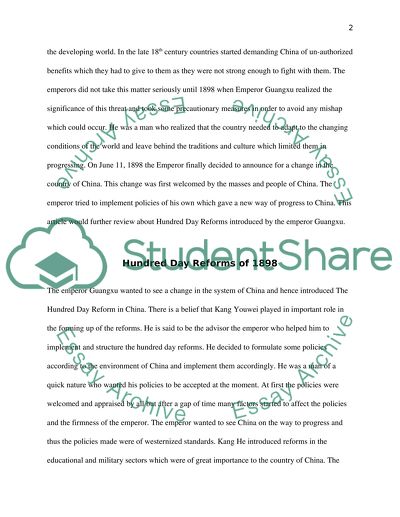Cite this document
(“Reasons for the failure of the hundred days reform in 1898 (History of Essay”, n.d.)
Retrieved from https://studentshare.org/miscellaneous/1545509-reasons-for-the-failure-of-the-hundred-days-reform-in-1898-history-of-china
Retrieved from https://studentshare.org/miscellaneous/1545509-reasons-for-the-failure-of-the-hundred-days-reform-in-1898-history-of-china
(Reasons for the Failure of the Hundred Days Reform in 1898 (History of Essay)
https://studentshare.org/miscellaneous/1545509-reasons-for-the-failure-of-the-hundred-days-reform-in-1898-history-of-china.
https://studentshare.org/miscellaneous/1545509-reasons-for-the-failure-of-the-hundred-days-reform-in-1898-history-of-china.
“Reasons for the Failure of the Hundred Days Reform in 1898 (History of Essay”, n.d. https://studentshare.org/miscellaneous/1545509-reasons-for-the-failure-of-the-hundred-days-reform-in-1898-history-of-china.


